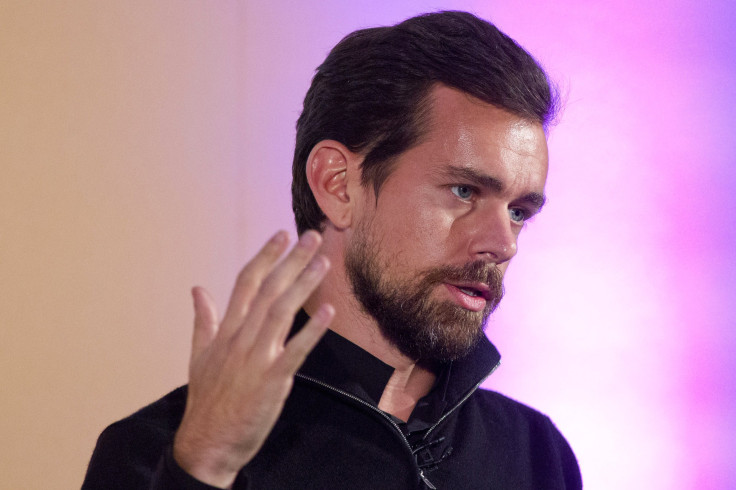Square Stumbles Again On Way To IPO: 'This Is A Failure'

SAN FRANCISCO -- Square had been stumbling into its initial public offering and on Wednesday the company got tripped up once again: the payments-processing firm may reportedly set its IPO price below the $11 to $13 range it listed earlier this month.
Square, which is set to begin trading on the New York Stock Exchange Thursday under the symbol ‘SQ,’ had already disappointed investors when it set its valuation at $4 billion, 30 percent less than the $6 billion it’d been valued at during its final round of private funding last year. The company, which has been busy with its roadshow over the past two weeks, was hoping to keep that number from falling further, but the tech company will likely price its IPO below $11, according to CNBC, citing sources familiar with the matter.
The official listing price will be announced after the bell on Wednesday, but already, many are seeing Square’s IPO as the first sign that a tech bubble will indeed burst and could have widespread ramifications.
“This is a failure,” said Phil Davis, CEO of Philstockworld.com “There is so much money riding on the 20 to 30 companies in that category that people got excited about too early. If the IPO comes in shy of expectations, you will force tens of billions of Silicon Valley investments to revalue, which could then blow back on the Nasdaq. If that bubble pops that could devalue the entire Nasdaq."
Though Square’s IPO is seen by some as the trigger that will burst Silicon Valley’s bubble, it is hardly the only tech company to underwhelm investors in 2015. Twitter, Square’s sibling company, is one of many tech companies currently trading under its IPO price. Others include Alibaba, GoPro, Fitbit and Box.
“This is a bellwether moment for the tech and venture capital industry about coming to grips with the reality of the macro-conditions of the marketplace,” said Johnny Won, founder of Hyperstop, a consultancy firm. “A lot of the hype that we bought into collectively over the past few years is getting undone.”
What Should Square Do?
Square revealed its financials last month, and the numbers were not too bad. The company has shown steady growth over the past couple of years, increasing revenue 54 percent from $552 million in 2013 to $850 million in 2014. But at the same time, its net losses have increased nearly quite as much, rising 47 percent from $104 million to $154 million.
A far bigger issue for Square is that it has yet to really define what it is it offers. When it launched, Square offered merchants the ability to accept payments using nothing more than a smartphone and its free card reader. Since then, Square has launched an iPad-powered cash register, a peer-to-peer payments service and software for small businesses that want to track their transactions.
Though many customers find these tools useful, Square is now in a much more crowded market than it was when it burst on the scene in 2009. It competes with PayPal on numerous fronts, and it was ditched by Starbucks, which had agreed to a massive deal to accept mobile payments via Square but ultimately decided to build its own mobile payments app. At the same time, the market has been flooded by Apple Pay, Android Pay and Samsung Pay, mobile payment systems that work with numerous point of sale systems.
“Square is a payments-processing company that wants to be a business applications company with payments processing as a back bone. It may indeed get there, but that’s more aspirational than reality today,” said James Gellert, CEO of Rapid Ratings, a research and analytics firm. “They are logically compared with some pretty big and successful competitors, and it is a very hot space with a lot of competition.”
Rapid Ratings, which keeps a rating on public companies and those about to hold their IPOs, said Square’s “core health is squarely -- sorry, no pun intended -- in our high-risk zone,” Gellert said.
Can Jack Run Two Companies?
For CEO Jack Dorsey, Square’s failure to maintain its proposed IPO price could be the first sign that leading both the payments company as well as Twitter may be too big of a task to handle. Dorsey, who co-founded both companies, was listed as one of Square’s risk factors when the company announced its intentions to go public last month.
Though other techies have successfully lead two companies at the same time, like Steve Jobs with Apple and Pixar or Elon Musk currently with SpaceX and Tesla Motors, Dorsey is currently at the helm of two major companies facing monumental tasks. Square is set to go through its first few months as a public company while Twitter is trying to rejuvenate its product and bring on new users.
“Dorsey’s been on the Square roadshow for the last two weeks. Has he been dedicating much time to Twitter? No. Does Twitter need time every week? Yes,” Gellert said. “This is extremely difficult to run both of these companies, no matter how much of a superstar you may be.”
© Copyright IBTimes 2025. All rights reserved.




















